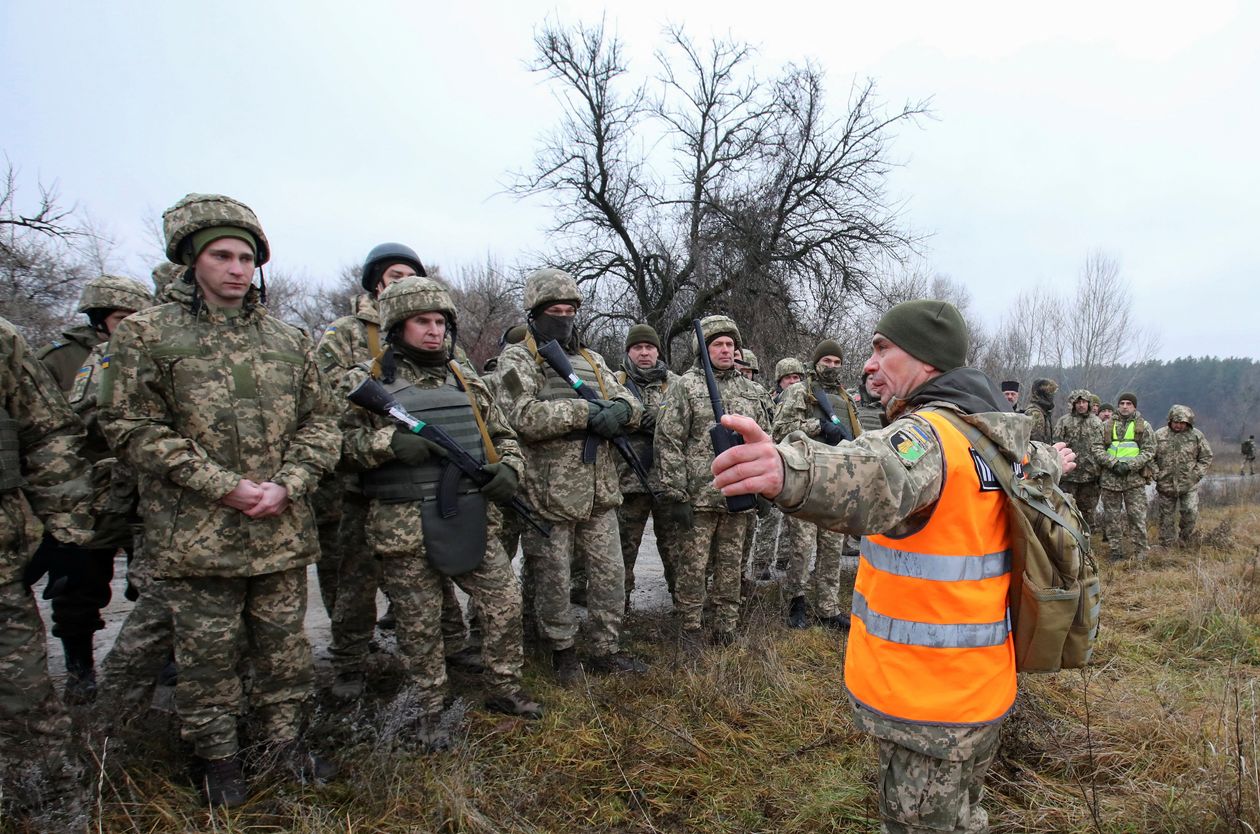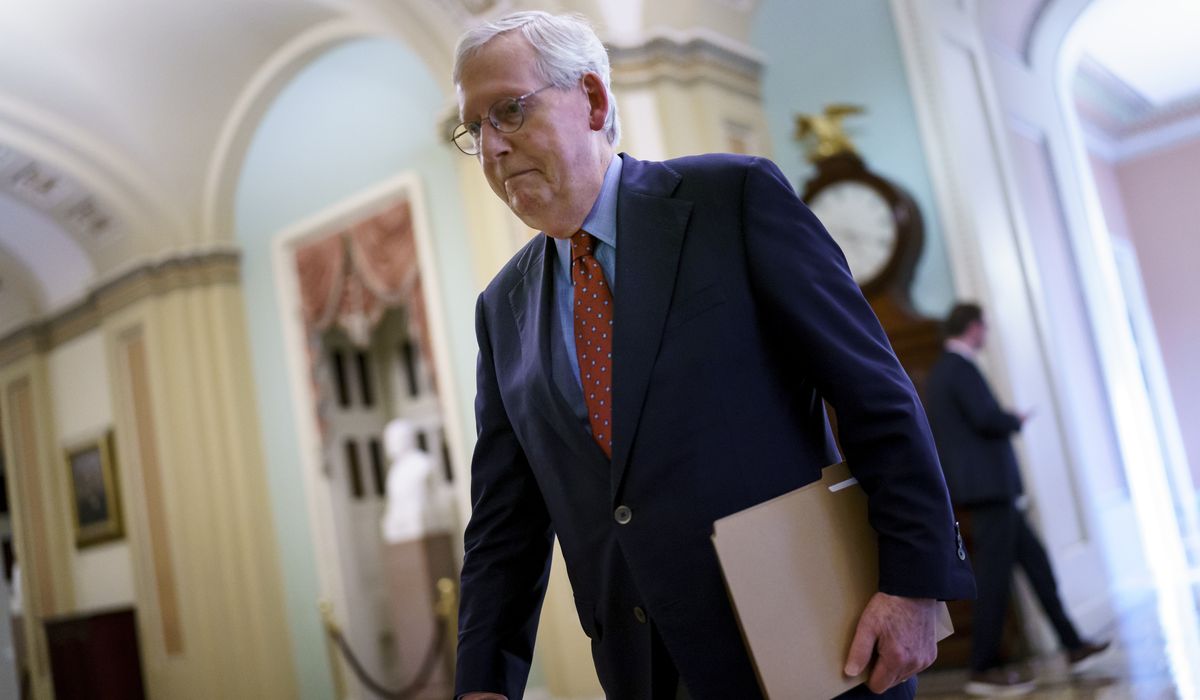KHARKIV, Ukraine—An unexploded long-range Russian rocket, brought here from the war-torn Donetsk region to the south, sticks out from the ground opposite the government headquarters of Ukraine’s second-largest city.
Back in 2014, when Ukraine’s military conflict with Russia began, pro-Moscow militants seized this government compound, planted a Russian flag on its roof and proclaimed a short-lived breakaway republic.
At the time, pro-Russian sentiment ran high in this industrial city of 1.4 million people just a half-hour drive from the border.
Eight years later, as Russia has massed more than 100,000 troops around Ukraine, Ukrainian President Volodymyr Zelensky has pointed to Kharkiv as a likely target of an invasion.
But while the city may have been a relatively easy target for Moscow in the past, sentiment here has since shifted dramatically against the Kremlin. Any Russian military operation in Kharkiv is now likely to face significant resistance from ordinary civilians.
In 2014, with street clashes and shootouts between pro-Russian and pro-Ukrainian groups spreading, it seemed for a few days that overwhelmingly Russian-speaking Kharkiv, just like nearby Donetsk and Luhansk, would slip from Kyiv’s control. Only the intervention of a quick-reaction force dispatched from southwestern Ukraine restored central authority here.
Today, the newly created 113th territorial-defense brigade, part of a military force that would defend Kharkiv against a possible invasion, has more many volunteers than slots, and is beginning to turn people away, its commanders say. A second Kharkiv brigade is being formed to take in these recruits.
“It’s every segment of society, from nuclear physicists to shop assistants to engineers to students, asking to join,” says Mykhailo Sokolov, the 113th brigade’s chief noncommissioned officer. “We will all defend our homes, our spouses, our children, our lovers with weapons in our hands. If their aviation tries to destroy us from the air, we will dig in to fight from under the ground. Where can we retreat to? There’s nowhere to go. It’s our own land.”

Military exercises at a training ground outside Kharkiv.
Photo: VYACHESLAV MADIYEVSKYY/REUTERS

The exercises are being held as Kharkiv has been singled out as a likely target of a Russian invasion.
Photo: VYACHESLAV MADIYEVSKYY/REUTERS
The reason for this defiance is simple: Kharkiv residents are keenly aware of what has happened in Donetsk and Luhansk since that region fell under Russian sway in 2014. The economy there has shriveled. Businesses, homes and cars were expropriated by Russian-installed militias. People suspected of pro-Kyiv sympathies were shot or imprisoned. Most residents who could afford to have fled to government-held parts of Ukraine, especially Kharkiv, or to more prosperous Russia.
Even traditionally pro-Russian politicians in Kharkiv acknowledge the force of this example.
“There are no fools anymore. People see that things are bad in Donetsk and Luhansk, and that things are good here. They have war over there and we have peace and quiet over here,” says Sergey Gladkoskok, who heads Opposition Platform for Life, the country’s main Moscow-friendly party, in Kharkiv’s regional legislature.
So far, there is little sign of crisis in the city. Shopping malls, restaurants and bars are teeming with customers, and no armed troops or military equipment can be seen on Kharkiv’s streets. There is no panic shopping, and supermarkets are fully stocked.
SHARE YOUR THOUGHTS
Can an incursion into Ukraine by Russian forces be averted? If so, how? Join the conversation below.
Kharkiv regional Gov. Oleh Syniehubov says he has just toured Ukrainian military units deployed along the border and was told that no unusual Russian military activity suggesting an invasion in the immediate future had been observed within 50 kilometers of the frontier. The only indicator of possible trouble so far, he adds, is that some car importers have become reluctant to send new vehicles to Kharkiv’s showrooms, aware of how new cars were looted from Donetsk dealerships in 2014.
Kharkiv holds a special place in Ukrainian history. When the Soviets quashed an independent Ukraine just over a century ago, they established Kharkiv as the capital of the new Ukrainian Soviet republic. The Soviet Ukrainian government, seated in Kharkiv’s modernist Derzhprom building, considered to be Europe’s first skyscraper, returned to Kyiv in 1934.
A showcase of Stalin’s industrialization drive, Kharkiv was also one of the hubs of the Soviet military might, from tank building to nuclear-bomb technologies. Those industries began to decay as new international borders cut them off from traditional customers and suppliers in Russia in 1991. Many closed altogether after Russia annexed Ukraine’s Crimean peninsula and fanned the military conflict in Donetsk and Luhansk in 2014.

Ukrainian President Volodymyr Zelensky taking part in a celebration of the armed forces in Kharkiv in December.
Photo: presidential press service hando/Shutterstock
“Local businesspeople’s attitudes to Russia are mostly negative now. We’ve lost a lot from this conflict, the market is feverish because of the constant threat of an invasion, and the prices of Russian gas have become so high that using it is often no longer feasible,” says Oleksandr Popov, who owns a hunting-rifle manufacturer, a network of fitness clubs and a security company in Kharkiv. Mr. Popov says these companies currently employ 600 people in total, down from roughly 2,000 in 2014.
Back in 2014, as Russian militants poured into Kharkiv across the then-porous border, about 30% of the city’s population harbored loyalty to the Ukrainian state, estimates Kostyantyn Nemichev, who heads the defense committee uniting pro-Ukrainian groups in the city and leads the local branch of the far-right National Corps party.
After being ousted by street protests in Kyiv in February 2014, Russian-backed President Viktor Yanukovych initially flew to Kharkiv, where a congress of pro-Russian politicians and elected officials from all over eastern and southern Ukraine had convened. After a short stay here, Mr. Yanukovych proceeded to Crimea and then escaped to Russia.
At the time, Mr. Nemichev was a 19-year-old fan of the local soccer team, FC Metalist, whose supporters fought street battles against pro-Russian youths as Kharkiv’s law-enforcement authorities remained largely neutral, waiting to see which side would emerge victorious.
After weeks of wavering, the city’s mayor and power broker, Hennady Kernes, a former ally of Mr. Yanukovych, sided with the Ukrainian state, and shortly afterward survived being shot by a sniper. Militants of the local pro-Russian group, Oplot, escaped the city to Donetsk, and many other locals with pro-Russian sympathies have since emigrated to Russia.
Now, Mr. Nemichev estimates, some 70% of the city’s residents are loyal to Ukraine, with a quarter, mostly older people, remaining nostalgic for the Soviet past and only about 5% actively supporting Russian President Vladimir Putin.

Sentiment in Kharkiv has switched in favor of Ukraine in the past few years.
Photo: Vyacheslav Madiyevskyi/Zuma Press
“Pro-Russian forces are no longer present on the street. Pro-Ukrainian forces are much stronger, much larger, and possess a military experience,” says Mr. Nemichev, a Ukrainian army veteran who joined a volunteer battalion to fight Russia-backed troops in Donetsk in 2014. “If the Russian army were to come here, they would probably stop at the outskirts of Kharkiv and try to get these pro-Russian forces to rise up from within. Our duty as Kharkivites would then be to extinguish these separatist feelings while our army does its own job.”
It is hard to measure the extent of remaining support for the Kremlin, in part because publicly backing calls to attach Kharkiv to Russia constitutes a criminal offense under Ukrainian law. Billboards of Ukraine’s intelligence service all over Kharkiv provide a hotline to call in separatist threats. Still, in some parts of the city, graffiti proclaiming “Russia: Aggressor” have been altered to become unreadable, presumably by locals who hold a different view of Moscow.
Unlike Kyiv, which has undergone a linguistic transformation in the past eight years, with a much larger share of the population choosing to communicate in Ukrainian rather than Russian, Kharkiv remains overwhelmingly Russian-speaking, like many other cities of eastern and southern Ukraine. That, however, shouldn’t be mistaken for local affinity with the Kremlin or Mr. Putin, said Tetiana Yehorova-Lutsenko, the head of the Kharkiv regional legislature.
“Even if people communicate in Russian, they certainly don’t have the same way of thinking as the people who live in Russia, or as the people who want to live in Russia,” she said. “They think the Ukrainian way. They want to live in a country at peace.”

Festivities in Kharkiv marking the 30th anniversary of Ukraine’s independence in August last year.
Photo: Vyacheslav Madiyevskyi/Zuma Press
Write to Yaroslav Trofimov at [email protected]
Copyright ©2022 Dow Jones & Company, Inc. All Rights Reserved. 87990cbe856818d5eddac44c7b1cdeb8








